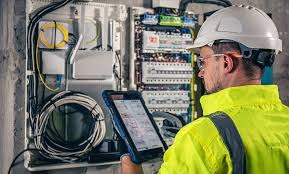In a city like Dubai, where modern architecture meets rapid development, ensuring the safety and functionality of your property is more important than ever. Electrical systems are the backbone of any home, but they can also pose significant risks if not properly maintained. Faulty wiring, outdated systems, or overloaded circuits can lead to serious hazards, including fires, power outages, and costly repairs. For Dubai properties, where extreme heat and high energy demands are common, property inspections are essential for identifying and addressing electrical issues before they escalate. In this blog, we’ll explore common electrical problems in Dubai homes, the importance of inspections, and how you can protect your property and loved ones.
Common Electrical Issues in Dubai Properties
Dubai’s unique climate and lifestyle can put additional strain on electrical systems. Here are some of the most common electrical issues faced by homeowners in the region:
- Overloaded Circuits: With the high use of air conditioning, appliances, and electronics, circuits can easily become overloaded, leading to overheating and potential fire hazards.
- Outdated Wiring: Older villas and apartments may have wiring that doesn’t meet current safety standards, increasing the risk of electrical fires.
- Power Surges: Frequent power surges, often caused by the city’s high energy demands, can damage appliances and electrical systems.
- Faulty Outlets or Switches: Loose connections or damaged outlets can lead to sparks, shocks, or power failures.
- Moisture-Related Issues: In areas like bathrooms, kitchens, or balconies, moisture can cause short circuits or corrosion in electrical components.
- Inadequate Grounding: Poor grounding can increase the risk of electrical shocks and damage to sensitive electronics.
Ignoring these issues can lead to dangerous situations, including electrical fires, which are a significant concern in Dubai’s high-rise buildings and densely populated communities.
The Role of Property Inspections in Electrical Safety
A thorough property inspection is your best defense against electrical hazards. During an inspection, a licensed electrician or home inspector will:
- Check for outdated or unsafe wiring
- Test outlets and switches for proper functionality
- Inspect the electrical panel for signs of wear or overload
- Identify potential fire hazards, such as exposed wires or overloaded circuits
- Ensure your home meets current electrical codes and safety standards
Modern tools, such as thermal imaging cameras, can detect overheating components that are invisible to the naked eye, providing an extra layer of protection.
Conclusion
Electrical issues are more than just an inconvenience—they’re a serious safety concern. By investing in regular property inspections, you can identify and address problems before they become hazards. Whether you’re a homeowner, buyer, or property manager, prioritizing electrical safety is a smart and responsible choice.


